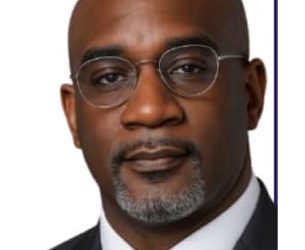Whenever any person is charged with a criminal offence, he shall, unless the charge is withdrawn, be entitled to a fair hearing in public within a reasonable time by a court or tribunal
– Section 36 (4), 1999 Nigerian Constitution (As Altered) [emphasis added]
The management of public access to the trial of Nnamdi Kanu is not being carried out in a manner that would have increased public confidence in transparency and fairness.
The Nigerian Constitution, as a rule, requires all trials to be held in public with exceptions, only on application to the Court. Nothing can be more public of the proceedings of a trial court than when they are live-streamed by way of virtual hearings, which have been adopted by Courts all over the world. In the wake of the Covid-19 pandemic, many trial courts have, by their Practice Directions, given options to litigants to conduct their court proceedings using virtual processes, particularly live streaming. The Nigerian Court of Appeal, the High Court of the Federal Capital Territory, the National Industrial Court of Nigeria, and the Community Court of Justice (ECOWAS Court) have successfully demonstrated the plausibleness of live-streaming court proceedings.
The reported shortlisting of some media houses and the restriction of lawyers from gaining access to the courtroom is not proper. Access of members of the public, particularly journalists who wish to cover the court proceedings, must be assured, and the only way to do that is to adopt a virtual hearing, which will make the trial proceedings truly public by live streaming. This is especially so because not only do Nigerians want to follow the trial trials of Mazi Nnamdi Kanu, the leader of the Indigenous People of Biafra (IPOB), which is currently before the Federal High Court Abuja, the international community also wants to monitor the trial because of the massive interests that his recent arrest and rendition have generated. Given the COVID-19 pandemic, courts across the world have adopted virtual hearings as a means of conducting trials, whether civil or criminal.
The Nigerian government and, indeed the Nigerian judiciary must not miss this golden opportunity to show to the world that it can guarantee transparency and openness in the country’s administration of justice. Issues of national security that could have been used as the basis of restriction to the courts would be resolved when the court adopts a modified virtual hearing in the trial of Nnamdi Kanu.
Therefore, expectedly, in a live streaming session of the court proceedings, only the Defendant, Nnamdi Kanu, with his lawyers, the prosecution team, and the Court staff which include the judge, the clerks and should be in court while the official videographers, broadcast the live proceedings through the various conventional media like the NTA, Arise News Channels TV, etc. and social media channels like YouTube, Zoom, and Facebook.
The Citizens Advocacy for Social & Economic Rights (CASER) had seen the possibility of the live broadcast of court proceedings in Nigeria. In 2016, CASER made spirited efforts to convince the National Judicial Council (NJC) to adopt the standard of live broadcast to provide further accessibility and credibility to the work of courts of justice across Nigeria. After a series of correspondence, the then Chief Justice of Nigeria, in a letter to CASER, acquiesced to the possibility of adopting live broadcast of court proceedings as a standard but observed the absence of enabling technology to make it happen. Following that, a member of the House of Representatives Hon. Daniel Reyenieju from Delta State sponsored a Bill [HB.16.11.864] for an ACT TO PROVIDE FOR MEDIA COVERAGE OF NIGERIAN COURTS PROCEEDINGS FOR THE PURPOSE OF GATHERING AND DISSEMINATING NEWS TO THE PUBLIC AND FOR RELATED MATTERS, 2016, which only passed Second Reading and was never enacted.
2020 became a watershed for the campaign to adopt the live broadcast of court proceedings as a standard. The realities of COVID-19 forced courts in Nigeria to adopt virtual hearings for many trials, especially hearing of applications and delivery of rulings with judgments. Heads of Court began to issue practice directions for online filings and remote conduct of cases by virtual hearings. The successful practice of virtual hearings during the COVID-19 lockdowns has corroborated the plausibility and possibility of the live broadcast of court proceedings in Nigeria.
The ongoing trial of Mazi Nnamdi Kanu now again presents an opportunity for Nigeria to apply the standard of the live broadcast of court proceedings to assure transparency and fair hearing in her justice delivery process. The benefits of live streaming the trial of Mazi Nnamdi Kanu with limited attendance far outweigh any possible security concern the government may raise. Rather, such will be a plus as an improvement for the administration of justice in Nigeria
Frank Tietie, Esq.,
Human Rights Lawyer & Executive Director, Citizens Advocacy for Social & Economic Rights (CASER)
© Copyright 2023. All rights reserved – Law Times Consultary Ltd A Frank Tietie Company lawtimesng@gmail.com +2347014444498














